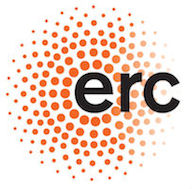Specialists caring for premature babies are developing a computer game that can measure the impact of premature birth on brain function. Recently, children visiting London’s Science Museum were asked to contribute to a brain research project by playing computer games at London’s Science Museum and the performance of hundreds of volunteer children, aged between six and seven has been tracked.
According to neuropsychologist Anita Montagna the tests disguised as computer games require specific cognitive skills:
“One is executive attention, so the ability to hold information and to inhibit automatic responses. That’s the idea and then there’s working memory, holding information in mind and manipulating the information online and it’s really important as it predicts academic achievement and other skills in life and then we have selective attention, the ability to focus the attention and to not pay attention to distractions and you can see that in the games and we’ve got sustained attention, the ability to keep the attention for a long time.“
Some of the volunteer children will now be asked back to the MRI imaging laboratory for further testing. The research team plan to scan 60 eight-year-old children, 30 born prematurely and 30 born at term, to see if there are any differences in how the brain network develops over time.
Full article available here: http://www.euronews.com/2015/02/17/mind-games-developed-as-researchers-take-a-peek-into-premature-brains/





